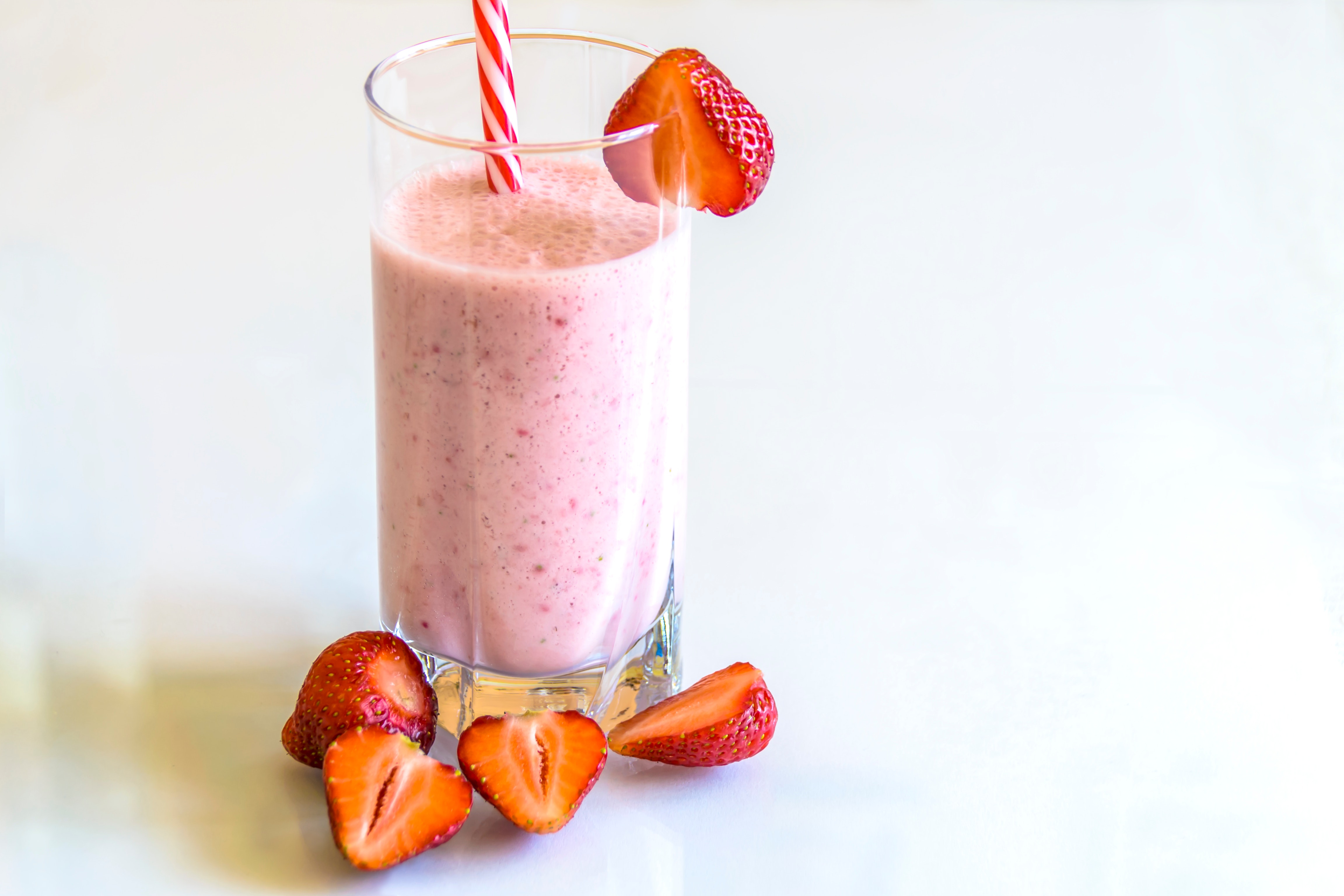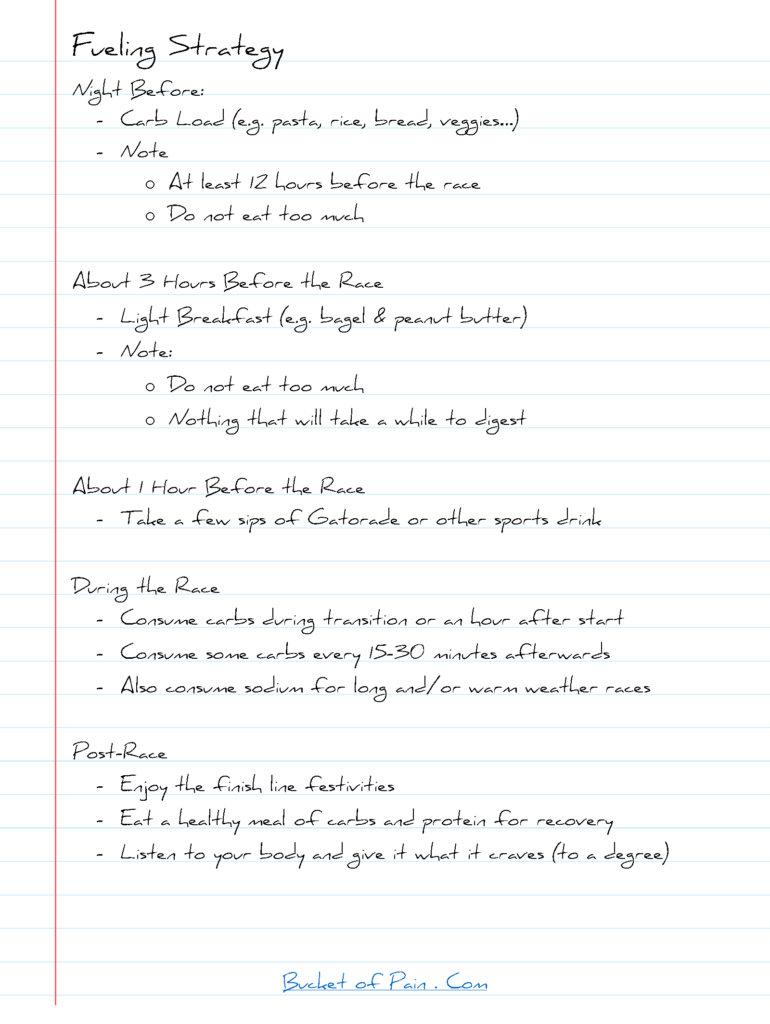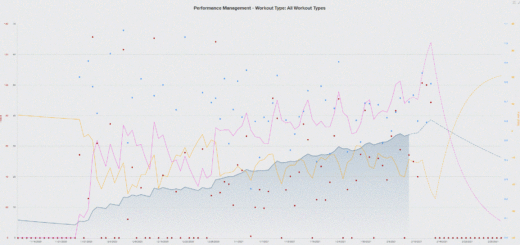Race Nutrition – How to Eat for Your Race
You’ve followed the training plan and have gotten in shape. You think you are ready for race day and line up by the edge of the water.
Not so fast… nutrition immediately before and during your race can make or break everything you have worked towards. Your overall fueling strategy could be the difference between a properly executed race or hitting the wall in the middle of the course.

A well-crafted fueling strategy should be based on a cycle of continuous trial and error to see what agrees with your stomach and what will cause you to visit every port-a-potty on the course. Additionally, you have to determine how long specific nutrition will last. Unfortunately, this is different for each individual. What works for your training partner may not work for you. You will want to test your nutrition plan several times during training to ensure there are no race day surprises. However, here are some guidelines to get you started on what to consume and at what time.
Tip: Whenever possible, train with the nutrition that will be provided during the course
The Night Before
I know you have heard about it… you have probably dreamed about it. The meal where endurance athletes get their fill of bread and laugh over a large mound of pasta, the infamous carb load meal. The day prior to the event, plan to eat an early dinner heavy with carbohydrates, such as pasta, rice, bread and veggies. Ensure this meal is at least 12 hours before the start of the race so your body can process the food. This primes your body for the race by ensuring it has all the necessary fuel stored in your system. Eat a healthy serving, but do not overstuff yourself. This should become your ritual meal the night prior to your race and make this your tradition. From this point forward, your schedule should be carefully crafted and executed with military precision to avoid surprises. With time your body will go on autopilot from this point forward and the race day anxiety that many experience will go away.
Early Morning
This is a continuation of the carb consumption from the night before. Plan a light meal such as a bagel with peanut butter to replenish any glycogen that your body depleted from the night before. This ensures that your fuel levels are at their peak when you step up to the start line.
The Hour Before
A few hours after the light breakfast and every hour afterward, begin sipping on some sports drinks to keep your energy stores at their peak. Do not have anything solid at this time since your body may have issues due to the stress of anticipation. Drink enough to keep the fuel level high, but not enough to make you slosh around during the early parts of the race.
During the Race
Begin consuming carbs around an hour after the start of your race and approximately every 15 – 30 minutes afterward. Depending on your abilities, one or two energy gels may be sufficient depending on the race distance. Longer distance races will also require you to begin consuming sodium. The rate of carb and sodium consumption varies significantly for each individual and a series of trial and error will be needed to determine what works for you. Once the appropriate ratio and frequency has been established, continue to fuel yourself until the finish of the race.
Post-Race
After the race, bask in your accomplishment. You have just completed a triathlon!!! Allow yourself to enjoy the energy of the finish line and remind yourself that it was worth all those hours of training. Once the moment has passed, you should think about recovery. Begin consuming carbs to begin the recovery process and minimize muscle fatigue and soreness. At this time, begin consuming protein also so your body can begin repairing the damaged muscles. For the remainder of the day, consume a balanced diet, listen to your body and enjoy an extra desert… you have earned it.
Note: The recommendations listed above are just starting points. Each individual must carefully evaluate different options to find a fueling plan that complements their abilities. Athletes with special dietary needs should consult their physician to ensure they have the appropriate nutrition during the race.


